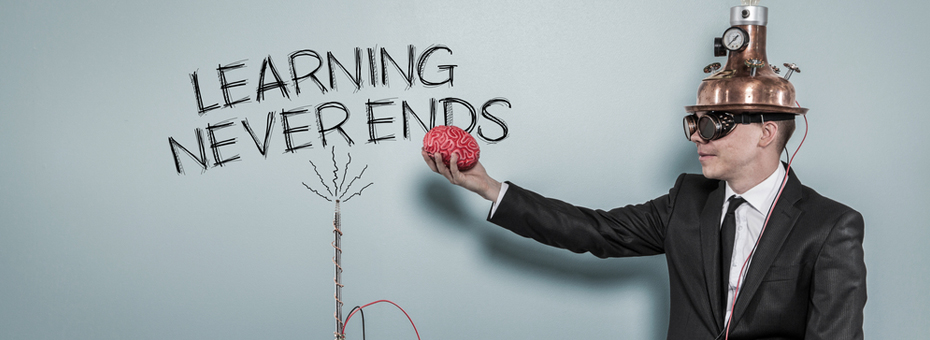I have been alive for more than 27,000 days and am still learning.
When will that stop?
I have recently had the honor of collaborating on a new book, The Lean Strategy, with four other people* that gives insight into the answer to that question. And I decided that the answer to the question is…at the end of this article.
One of the things I have noticed about people who have truly changed their way of thinking from traditional hierarchical thinking to Lean Thinking is their sense of humility. By this I don’t mean the false mask of humility that many executive wear (and is easily seen for what it is), but a true respect for people for who they are and not for the job they do or position they hold. The best leaders I have worked with are interested in people no matter what their role in the company and want to hear what they have to say. And people understand this within seconds. You can’t fake whether you really care about people.
In the traditional business world those of us that make it to the “C-Suite” somehow come to believe that we achieved that level of success because we demonstrated that we have all of the answers. As a result we have developed a business model where executives make the “important” decisions and everyone else’s role is to implement them.
I received my college education at a Jesuit university and one of the things that stuck with me during the early days of my business career was a lesson I learned there: never accept anything at face value…always ask “why.” Unfortunately, without realizing it, I forgot this lesson at some point after I became “management.”
Fortunately, in 1989 I had the opportunity to participate in an event that brought me back to my senses. That event was Dr. Edwards Deming’s four-day seminar. What Dr. Deming talked about during those four days made perfect sense to me. When he talked about the Shewhart Cycle of Plan, Do, Check, Act (PDCA) that resonated with me for reasons that I didn’t understand then. But it started me on the path of doing business in a different way. As we know today, that way is the way pioneered by Toyota, which we now call “lean.”
Since that initial experience with Dr. Deming I never stopped to think about why I was comfortable with this way of thinking until, in 2015, more than fifty years after graduating from Fairfield University, I returned to speak to some of the students. In preparing for that talk I did some research on Fairfield and its progress since I graduated. Among other things I found a YouTube video of Don Gibson, Dean of Fairfield’s Dolan School of Business, giving a talk in which he described the Jesuit pedagogy:
- Experience Reality
- Reflect on that Experience
- Action based on that Reflection
At that point I realized that the Jesuit pedagogy and Lean are based on the similar principles. In The Lean Strategy we describe them as:
- Find what the real issues are at the workplace
- Face the real problems to grasp what is really going on
- Frame the situation in terms of improvements needed
- Form solutions by developing capabilities
At the core of both the Jesuit pedagogy and Lean Strategy is the neverending asking of questions based on real world experience and deep reflection. Both are about learning. Both are about are about learning from experience. Both are about applying deep thought to that experience to ferret out the lessons to be learned. And both recognize that learning should never end. In lean that’s the basis of continuous improvement. In the Jesuit pedagogy it’s the basis of continuing education…what a professor of mine referred to as “rust proofing.”
Also implicit in this type of learning process is the concept that the road between experience and the lessons to be learned is not always straight. Along the way we will often travel down dead ends (i.e. fail), but that itself is a learning experience. Thus, the famous Thomas Edison quote about trying to invent the light bulb “I haven’t failed, I’ve just found 10,000 ways that won’t work.” That’s the Kaizen spirit. Observe, reflect, experiment, learn from both successes and failures.
So, why do we have so few true Lean success stories? In my opinion, for the past too many decades, business schools have been teaching future executives that they need to know how to give answers, not how to ask questions. In a very subtle way we have instilled a mindset that asking questions is a sign of weakness. Not having a brilliant answer to any problem is a defect, a failure in the negative sense of the word. And that is what led me astray…until Dr. Deming. I now realize, the “DCA” of PDCA are, to me, similar to the three principles of the Jesuit pedagogy and that’s why listening to Dr. Deming struck a deep cord within me. And although that pedagogy does not explicitly state a “Plan” step, I can tell you from experience that the Jesuits don’t do anything willy-nilly…there is always a plan.
In order to be effective at whatever we do, we must realize that there is always more to learn. As a leader, that includes learning from the people doing the work since they know best where the problems are. So, to answer the question “When do you stop learning?” I believe the answer is when you stop asking “Why?”
* The other collaborators of The Lean Strategy are Dan Jones (co-author of Lean Thinking), Michael Balle (co-author of The Gold Mine series), Jacques Chaize, a successful Lean CEO, and Tom Ehrenfeld, our editor (and the “silent voice” behind many Shingo Prize winning books).



